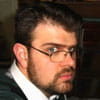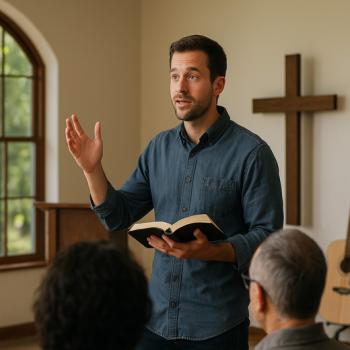 By Stephen C. Taysom
By Stephen C. Taysom
In recent years, the study of Mormonism has garnered a good deal of attention from academics in a wide range of fields. Sociologists, anthropologists, legal scholars, and those in religious studies have joined historians in researching about and Mormonism, and many more scholars have integrated serious discussions of Mormonism into their classroom curricula. This new academic interest has led some to speculate about the future of "Mormon Studies" in the academy. The future is always a tricky thing to anticipate, but a close look at the current state of Mormonism in the academy offers some clues to what the future may hold.
In three cases, interest in Mormon Studies has driven the creation of religious studies programs in universities in Utah. For decades, Religious Studies, which is the name given to a constellation of methodological approaches scholars employ in an academic setting to examine religion as a cultural artifact, held very little interest for students in the Intermountain West. No doubt, part of the resistance to religious studies in Mormon-dominated areas stems from the tendency of scholars in that discipline to examine religions and religion as human creations and to emphasize the sociological, psychological, cultural, anthropological, and political functions of religion. LDS Church leaders have consistently encouraged college-age Mormons to attend church universities, such as one of the three Brigham Young University campuses, or church-sponsored Institutes of Religion adjacent to most American universities, in which the history and theology of Mormonism is studied in a devotional context designed to affirm the divine origin of Mormonism and to strengthen the faith in and commitment to Mormonism among students.
Mormonism is not unusual among conservative religious traditions in its suspicion of secular approaches to the study of religion. Such groups tend to view the handling of faith traditions by academics as deleterious to faith. However, Utah State University and Utah Valley University have each recently launched religious studies programs and each has a significant focus on the academic study of Mormonism. The program at USU offers a major in Religious Studies, and boasts two endowed chairs -- the Leonard Arrington Chair of Mormon History and Culture held by Philip Barlow, a Harvard-educated scholar of Mormonism, and the Charles Redd Chair in Religious Studies held by Charles Prebish, a distinguished scholar of Buddhism. There is no major available at UVU, but students may minor in Religious Studies. UVU offers courses on Mormonism that focus on the anthropological, cultural, and literary aspects of Mormonism. Like UVU, the University of Utah offers an interdisciplinary minor in Religious Studies, with courses offered in thirteen departments. The programs at USU, UVU, and the University of Utah are important because they both situate the study of Mormonism within the broader context of the scholarly study of religion as it is broadly conceived without attempting to denigrate or promote Mormonism as a way of life.
In California, Claremont Graduate University established the Howard W. Hunter Professorship in Mormon Studies, and named Richard L. Bushman as its inaugural occupant in 2007 with two other distinguished scholars -- Claudia L. Bushman and Armand Mauss -- working as visiting professors. The situation at Claremont is somewhat different from those at USU and UVU. Claremont designed, gathered funds, and implemented the Mormon studies program, including the Hunter Professorship, through the work of a group called "The Latter-day Saint Council on Mormon Studies," which, according to Claremont's website, is composed of "LDS leaders, including academics, lay leaders and interested community members, as well as faculty from the School of Religion." Obtaining funds from practitioners of a religious tradition for the academic study of that tradition is often necessary and nearly as often it is problematic. The necessity stems from the fact that practitioners tend to be the most interested in the tradition and the most willing to contribute to programs that study it. The problems arise when the goals attendant to the academic study of religion collide with the expectations held by the believers who contributed funding to the academic undertaking. The selection of professors and the development of course content are sometimes areas of conflict between the parties involved in such cases. This kind of tension is common and applies to religious traditions that are far more culturally ensconced than Mormonism is, as a similar case involving a teacher at the University of Illinois who was being paid by a Catholic organization but teaching in the university's Religious Studies department demonstrates.





